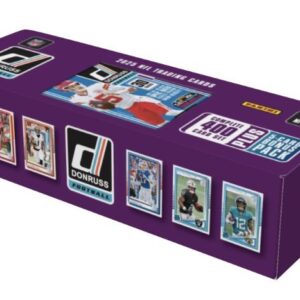In an unexpected twist, Industrial Inspection & Consulting has ventured into a new realm by offering CT scans for sealed packs of trading cards at the rate of $75. Originally meant to showcase the precision of their CT scanning technology, this new service has quickly become a topic of interest within the collecting community.
The journey began with Industrial Inspection’s remarkable CT scan of a sealed pack of Pokémon cards, demonstrating the potential of their technology. Despite initially ruling out any plans for a card scanning service, the company made a U-turn and added trading cards to their CT scanning services list.
The Service
For a fee of $75, Industrial Inspection will conduct CT scans of sealed packs of trading cards, along with providing the necessary viewing program for content analysis. There are talks of expanding this service to include sealed boxes in the near future.
Industry Reactions
The introduction of this technology has garnered mixed responses within the collecting community. While some express skepticism about the widespread adoption of the service, citing its relevance mostly to high-end products, there are concerns about the ability of collectors to interpret the scans without prior experience.
Keith Irwin, the general manager at Industrial Inspection, revealed that following the initial case study upload on YouTube, the company received ten requests for pack scanning within just two hours. Since then, their website traffic has surged by a staggering 17,000 percent.
Irwin stated, “We’ve seen a tremendous level of interest, not only from individual collectors but also from auction houses. It seems like everyone is intrigued and wants in on the action. If we don’t offer this service, someone else will.”
While withholding specifics due to non-disclosure agreements, Irwin mentioned that most inquiries revolve around the technology’s capabilities. There is speculation that group breakers might use this technology to identify and retain the best boxes, while others ponder its potential for authenticating sealed vintage boxes.
Community Concerns
The collecting community is fraught with concerns regarding the implications of this newfound technology. Prior to these recent case studies, many collectors were unaware that X-ray technology could be harnessed in this manner. The option to scan packs for $75 has sparked considerable debate among enthusiasts.
A segment of the community has criticized the practice, but Irwin and Industrial Inspection maintain that it is essential to make this service accessible to all collectors, not just the elite few.
Irwin emphasized, “Our aim is to ensure this service is within reach for everyone. We strive to be the ethical choice in an evolving landscape. If we abstain from providing this service, others will, potentially in less scrupulous ways.”
Ethical Considerations
The arrival of this service has prompted a host of ethical and moral questions. While collaborating with auction houses or authenticators could be viewed positively, there is a risk of restricting access for individual collectors seeking to verify their collections. Distinguishing between beneficial and detrimental applications is proving to be a challenge.
Irwin posed a poignant question, “The pressing question is: If we don’t engage, what happens?” He continued, “The answer is simple—someone else will step in. We choose to participate as responsible actors.”
Despite their intentions, the potential impact on the secondary market, especially for high-end products, is significant. While scanning packs of lower-end products may not be cost-effective, for vintage sports cards, early Pokémon releases, and high-end modern sets, this technology could be a game-changer.
It remains unclear if major trading card manufacturers are taking steps to shield customers from potential risks. Requests for comments from Panini America, Topps, and Upper Deck yielded no immediate responses.
Future Outlook
Irwin hinted that Industrial Inspection could flourish even without the card scanning service, although it does offer a lucrative revenue stream. One potential solution for card manufacturers could involve utilizing dosimeter stickers that change color upon exposure to radiation, indicating whether a box has undergone scanning.
For now, Industrial Inspection plans to forge ahead with scanning packs and, eventually, boxes. They are also considering scanning encapsulated sealed packs for collectors intending to break them open.
Regardless of the services they provide, the ethical and moral implications will continue to be a persistent issue for Industrial Inspection. The company’s website acknowledges, “Pandora’s box has been opened,” a sentiment shared by collectors.
“We’ve certainly struck a chord within the community,” Irwin expressed. “People have invested a significant part of their lives in these industries, making us ponder if we’ve taken the right course. However, if we hadn’t disclosed this and offered it as a service, people would be engaging in the practice clandestinely. We are in a dilemma where inaction is wrong, yet action is also questioned.”






